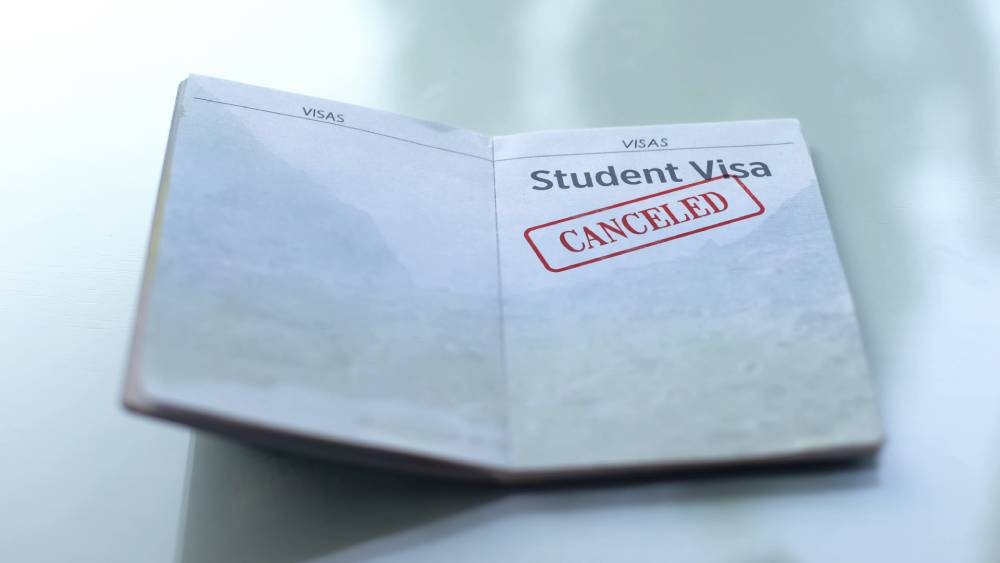Scholarships
December 8, 2020

If your visa has been refused or cancelled, as registered migrant agents, we may be able to assist you to appeal against the Department’s decision at the Tribunal and give you a successful outcome. We will work with competence, professionalism, and ethics to present your appeal case in the best possible way to maximise your chances of success.
Please read the information below for further details of the process of appeal.
Once you make a valid visa application with the Department your visa will be either granted or refused.
If you already hold a visa and if you are found to be in breach of your visa condition or are no longer eligible to hold the visa, then the Department may cancel your visa.
In certain cases, you may appeal to the Administrative Appeals Tribunal (AAT) if the Department of Home Affairs refuses or cancels your visa.
If you are in Australia, appeals have strict time limits. You must apply in writing within the time specified by the Department in their decision notice.
If the AAT affirms the decision of the Department, you may seek judicial review if you or your migration lawyer believes the decision was not lawfully made.
About the Administrative Appeals Tribunal (AAT)
The Administrative Appeals Tribunal (AAT) conducts independent merits review of administrative decisions made under the Commonwealth laws. They review decisions made by Australian Government ministers, Departments, and agencies and, in limited circumstances, decisions made by state government and non-government bodies.
The AAT was established by the Administrative Appeals Tribunal Act 1975 and commenced operations on 1 July 1976.
The Migration Review Tribunal, Refugee Review Tribunal and Social Security Appeals Tribunal were amalgamated with the AAT on 1 July 2015.
The AAT falls within the portfolio of the Attorney-General.
The AAT is a statutory body with the power to review decisions made under the Migration Act 1958 by the Minister, or by officers who are delegates of the Minister in the Department of Home Affairs.
In conducting a review of a decision about a visa, they will consider the case afresh and have the power to change the decision under review.
The rules about who may seek review of a particular decision, the applicable time limit, and whether a fee is payable vary depending on the type of decision and whether a person is in immigration detention.

Who can apply for review?
The decision letter sent by the department should explain whether the decision can be reviewed by AAT and who can apply for review.
AAT can only accept an application for review made by a person who has the right to apply for review. In some cases, the only person who can apply for review is the visa applicant or former visa holder. In other cases, it can only be the sponsor or a close relative. In some cases, the review applicant must be within Australia at the time of decision or at the time the application for review is lodged, or both.
Time limits for making your application for review
The decision letter sent by the department should state the time limit that applies to making an application to AAT.
If you are intending to apply for review, you should note that AAT cannot extend time limits or accept applications made outside a time limit.
How do I apply for review?
To apply for review, you must complete and lodge an ‘Application for Review’ form and pay the application fee (or 50% of the application fee together with an application for fee reduction) within the time limit.
Applications can be lodged online or by completing a form and lodging it by email, post, fax or in person. Applicants in immigration detention must use form M2 – ‘Application for review – Migration (For persons in immigration detention)’. All other applicants must use form M1 – ‘Application for review – Migration (for persons not in immigration detention and organisations)’.
Applications for review can be lodged online at http://www.aat.gov.au/apply-online.
Combined applications for review
Members of the same family unit can usually combine their applications for review. An application for review of a decision to require a security can also be combined with a related application for review of a decision to refuse to grant a visa. Where applications can be combined, only one application fee is payable and only one application form needs to be used.

The application fee:
A fee is payable in all cases except applications for review of bridging visa decisions (including any related decision to require a security) that are made by persons in immigration detention.
In all other cases:
What will happen during the review?
The review process varies from case to case. A typical case may follow these steps:
What is a Hearing?
The hearing is an opportunity for you to present information and talk about why you disagree with the decision under review. In other words, why you disagree with the Department’s decision to refuse or cancel your visa.
The hearing is an opportunity for you, a representative of the decision-maker and any other party, to present information and arguments about the decision under review.
The hearing is relatively informal and will usually be conducted by one Tribunal Member. The Member is the person who will make a decision about the review.
You can watch their video guide below for more information about what happens during a hearing.
https://www.aat.gov.au/resources/information-videos
When and where will the hearing be held?
The AAT will write to you to tell you the date, time and location of the hearing.
In many reviews it will be in a hearing room at an AAT office. You might be able to attend the hearing in person, by telephone, or by videoconference. You should tell AAT your preference when you lodge the application.
Who will be at the hearing?
As well as you, there will be:
There might also be:
What happens at a hearing?
The length of the hearing varies from case to case. Many hearings are finished in under 3 hours, but they can be longer.
You might receive AAT decision at the end of the hearing, or at a later date.
AAT will make an audio recording of the hearing.
What happens if you do not attend a hearing?
AAT might:
If the application is dismissed because you did not attend the hearing you can ask the AAT to reinstate the application. Such a request must be made within 28 days after you were notified that the application was dismissed.
If the application is not reinstated, the decision remains unchanged, and the AAT cannot review the decision.
How long will the review process take?
The time it takes to complete the review process depends on a range of factors, including the number of applications for review they receive, the number of members available to conduct reviews, the type of decision under review, the strategies they have in place for dealing with different caseloads, and the complexity of the review. Applications for reviews in the Migration and Refugee Division have more than doubled in the recent years (see their Statistics https://www.aat.gov.au/about-the-aat/corporate-information/statistics).
JURISDICTION:
The AAT can only review a decision if a law states that the decision can be reviewed by the AAT.
They can review decisions made under more than 400 Commonwealth Acts and legislative instruments. The most common types of decisions we review relate to:
Review of decisions
AAT reviews decisions “on the merits”. This means that they take a fresh look at the relevant facts, law and policy and arrive at their own decision. They must make the legally correct decision or, where there can be more than one correct decision, the preferable decision.
AAT has the power to:
AAT aims to provide a review process that:
Migration and refugee overview
The AAT can review some, but not all, decisions about visas made under the Migration Act 1958 by the Department of Home Affairs, the Minister for Home Affairs or the Minister for Immigration.
Character related visa decisions
The AAT reviews the decisions of the department to cancel the visa on the basis of character grounds. Such as;
For more information or to consult about your visa refusal or cancellation matter, contact our Sydney office on 02 8188 0740 and book for a phone or face to face consultation.
Join our FB Group page for regular updates on Immigration changes